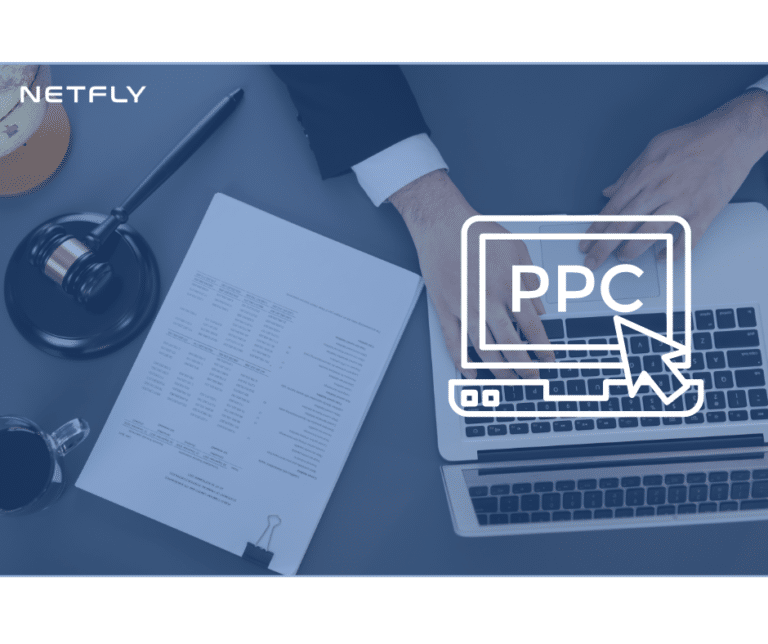When it comes to building lasting relationships with your law firm’s most valuable assets, clients, loyalty programs can be a game-changer. By implementing tailored strategies that prioritize client needs, you can strengthen trust and enhance satisfaction levels. But what specific tactics can truly set your firm apart in nurturing these long-term connections? Stay tuned to discover the key elements that can elevate your client loyalty program and solidify your position as a trusted partner in your clients’ legal journeys.
Key Takeaways
- Tailor loyalty programs to individual client needs for long-term engagement.
- Use personalized incentives like exclusive resources and discounts to enhance loyalty.
- Maintain regular communication to build trust and show dedication to client satisfaction.
- Leverage technology for streamlined interactions and instant accessibility.
- Continuously evaluate and adjust strategies based on feedback for improved client experience.
Importance of Client Loyalty Programs
Client loyalty programs are essential tools for law firms seeking to foster long-term relationships with their clients. By implementing loyalty benefits and retention techniques, law firms can enhance client satisfaction, increase client retention rates, and ultimately drive long-term profitability.
Loyalty benefits play a vital role in incentivizing clients to continue working with your firm. These benefits can range from exclusive access to legal resources, discounted services, priority scheduling, to personalized consultations. By offering these perks, you not only show appreciation for your clients’ loyalty but also create a sense of exclusivity that strengthens the client-firm bond.
Retention techniques are equally important in ensuring that clients remain loyal to your firm. Strategies such as regular check-ins, personalized communications, proactive issue resolution, and anticipating client needs can go a long way in fostering trust and loyalty. By staying proactive and attentive to your clients’ concerns, you demonstrate a commitment to their satisfaction and well-being.
Understanding Client Needs
To better serve your clients effectively, gaining a deep understanding of their unique needs and expectations is paramount in fostering long-term relationships and providing exceptional legal services. Client satisfaction hinges on your ability to anticipate and address their specific requirements. Conducting thorough feedback analysis allows you to pinpoint areas where improvements can be made, thereby enhancing the overall client experience.
Client satisfaction isn’t a one-size-fits-all concept. Each client brings their individual preferences, concerns, and objectives to the table. By actively listening to their feedback and analyzing their responses, you can tailor your services to align more closely with their expectations. This personalized approach demonstrates your commitment to meeting their needs and reinforces their trust in your firm.
Feedback analysis serves as a valuable tool in identifying trends and patterns in client preferences. By systematically reviewing and acting upon client feedback, you can continuously refine your services to better meet their evolving needs. This proactive stance showcases your dedication to client-centric practices and positions your firm as a reliable partner in their legal journey.
Designing Personalized Incentives
When crafting personalized incentives for your law firm’s clients, strategic planning and tailored approaches are essential for fostering loyalty and engagement. Personalized rewards and customized incentives can have a substantial impact on how clients perceive your firm’s value and their overall satisfaction with your services. By understanding your clients’ preferences, you can design incentives that resonate with their needs and preferences, ultimately strengthening the client-firm relationship.
To create effective personalized incentives, start by segmenting your client base to identify specific preferences and behaviors. This segmentation can help tailor incentives to different client groups, ensuring relevance and effectiveness. Consider offering rewards such as exclusive legal resources, complimentary consultations, or discounts on future services based on each client’s unique needs.
Furthermore, leverage technology to track client interactions and preferences, allowing you to offer incentives at strategic touchpoints in their journey with your firm. Implementing a system that automates the delivery of personalized rewards can streamline the process and enhance client satisfaction.
Communication Strategies for Retention
When it comes to retaining clients, effective communication is key.
You need to implement client communication techniques that foster trust and transparency.
Building strong relationships and utilizing strategic retention messaging methods will help solidify client loyalty for your law firm.
Client Communication Techniques
Effective client communication techniques play a pivotal role in fostering long-term relationships and enhancing retention rates within law firms. When it comes to maintaining strong connections with your clients, consider the following strategies:
- Regular Updates: Keeping your clients informed about their cases and any relevant legal changes shows your commitment to transparency.
- Active Listening: Actively listening to your clients’ concerns and feedback demonstrates empathy and helps build trust.
- Personalized Interactions: Tailoring your communication style to match each client’s preferences can make them feel valued and understood.
- Timely Responses: Promptly addressing client inquiries or issues showcases your dedication to providing excellent service and support.
Relationship Building Strategies
To cultivate enduring client relationships in a law firm, implementing personalized communication strategies is crucial for enhancing retention rates and fostering loyalty. Client satisfaction lies at the core of these strategies, focusing on tailoring interactions to individual needs and preferences.
Relationship nurturing becomes a central focus, where regular check-ins, feedback sessions, and personalized updates play a key role. By actively listening to clients, addressing concerns promptly, and showing genuine care, you can solidify trust and loyalty over time.
Building strong relationships through effective communication not only boosts client retention but also opens doors for referrals and positive word-of-mouth. Emphasizing personalized communication as a cornerstone of your client interactions can significantly impact long-term satisfaction and loyalty.
Retention Messaging Methods
To enhance client loyalty and strengthen the bond with your clientele in a law firm, implementing targeted retention messaging methods is a pivotal aspect of fostering enduring relationships. When it comes to retention techniques and client engagement, consider the following strategies:
- Personalized Communication: Tailor messages to individual clients to show genuine care and understanding.
- Timely Follow-Ups: Regularly reach out to clients to check on their satisfaction and offer support.
- Value-Driven Content: Provide valuable insights, updates, or resources that align with your clients’ needs and interests.
- Feedback Loop: Encourage open communication by seeking feedback and actively listening to your clients’ concerns and suggestions.
Leveraging Technology for Engagement
Integrating cutting-edge technology can greatly enhance client engagement for law firms seeking to expand their reach and impact. By focusing on technology integration, law firms can streamline their processes, improve communication, and provide a more personalized experience to clients. Implementing digital solutions allows for seamless client interaction, making it easier for clients to access information, communicate with their legal team, and stay informed about their case progress.
One key aspect of leveraging technology for engagement is the ability to track and analyze engagement metrics. By utilizing tools that provide insights into client interactions, law firms can better understand client preferences, behaviors, and needs. This data-driven approach enables firms to tailor their communication strategies, anticipate client needs, and deliver more targeted services.
Moreover, technology can facilitate real-time communication through various channels such as emails, chat platforms, and video conferencing. This instant accessibility enhances client satisfaction by providing quick responses to inquiries, updates on case developments, and a sense of transparency throughout the legal process.
Measuring Loyalty Program Success
When evaluating your law firm’s loyalty program success, key metrics and evaluation strategies are pivotal. These metrics can provide insight into client retention rates, satisfaction levels, and referral generation, all essential for measuring program effectiveness.
Metrics for Success
Evaluating the effectiveness of a loyalty program within a law firm necessitates a thorough analysis of key performance indicators and metrics. To measure the success of your loyalty program, consider the following metrics:
- Customer Retention Rate: Track the percentage of clients who continue to engage with your firm over time.
- Referral Rate: Measure how many new clients are referred to your firm by existing loyal clients.
- Feedback and Reviews: Monitor customer satisfaction through feedback and online reviews.
- Repeat Business: Analyze how often clients return for additional legal services.
Evaluation Strategies
To effectively gauge the success of your law firm’s loyalty program, focus on implementing a thorough set of evaluation strategies that encompass key performance metrics.
Start by conducting detailed feedback analysis to understand the sentiments and experiences of your clients. This analysis can provide valuable insights into the effectiveness of your loyalty program and areas for improvement.
Additionally, consider client segmentation to tailor your evaluation approach based on different client groups’ needs and preferences. By segmenting clients, you can better understand how various loyalty program initiatives resonate with specific segments and adjust your strategies accordingly.
These evaluation strategies will allow you to track the impact of your loyalty program effectively and make informed decisions to enhance long-term client relationships.
Addressing Client Feedback Effectively
Effective management of client feedback is paramount for law firms aiming to enhance service quality and client satisfaction. Addressing client feedback effectively can lead to improved relationships, increased loyalty, and a better reputation for your firm.
Here are some key strategies to help you navigate and respond to client feedback successfully:
- Prompt Response: Respond to client feedback promptly to show that you value their opinions and are committed to addressing any concerns they may have.
- Active Listening: Take the time to actively listen to what clients are saying, whether it’s positive or negative feedback. Understanding their perspective is essential in formulating an appropriate response.
- Constructive Action: Use client feedback as an opportunity to make constructive changes within your firm. Implementing suggestions or addressing issues raised can demonstrate your commitment to continuous improvement.
- Follow-Up: After addressing client feedback, follow up with clients to make sure they’re satisfied with the resolution. This extra step can show clients that you care about their experience and are dedicated to providing excellent service.
Enhancing Client Experience Continuously
Continuously enhancing client experience is an essential imperative for law firms aiming to foster long-term loyalty and satisfaction. To achieve this, law firms must prioritize continuous improvement and client engagement at every touchpoint. One key aspect of enhancing client experience is actively seeking feedback from clients and using it to make meaningful changes. Regularly collecting feedback allows you to identify areas for improvement and tailor your services to better meet client needs.
Client engagement goes beyond the legal services provided; it encompasses the entire client experience. Building strong relationships with clients involves effective communication, personalized interactions, and going the extra mile to exceed expectations. By staying engaged with clients throughout their journey with your firm, you can demonstrate your commitment to their success and well-being.
Moreover, implementing a system for monitoring client satisfaction and addressing any issues promptly is vital for maintaining high levels of client engagement. By proactively addressing concerns and resolving issues, you can show clients that their satisfaction is a top priority. Additionally, celebrating successes and milestones with clients can further strengthen your relationship and foster a sense of partnership.
Long-Term Relationship Building Tactics
Building lasting relationships with clients requires consistent communication and personalized attention throughout their journey with your law firm. To nurture these relationships effectively and implement retention tactics that encourage long-term commitment, consider the following strategies:
- Regular Check-Ins: Schedule periodic calls or meetings to touch base with your clients, inquire about their satisfaction, and offer assistance with any new legal needs that may have arisen. This showcases your proactive approach to their legal well-being and reinforces your commitment to their success.
- Personalized Follow-Ups: After completing a case or providing a service, send personalized follow-up emails or handwritten notes expressing gratitude for their trust in your firm. This personal touch goes a long way in making clients feel valued and appreciated.
- Exclusive Client Events: Host special events, such as seminars, webinars, or networking gatherings, exclusively for your clients. These events not only provide valuable information but also create opportunities for clients to interact with your team in a more relaxed setting, strengthening the bond between them and your firm.
- Feedback Mechanisms: Implement feedback mechanisms, like surveys or feedback forms, to gather insights on client satisfaction and areas for improvement. Act on this feedback promptly to show clients that their opinions are valued and that you’re committed to delivering exceptional service.
Frequently Asked Questions
How Can Client Loyalty Programs Impact Client Referrals?
Client loyalty programs can greatly impact client referrals. By offering referral incentives within these programs, you encourage word-of-mouth marketing. Satisfied clients become brand advocates, promoting your firm through client testimonials.
This organic form of marketing not only boosts your firm’s reputation but also attracts new clients through the positive experiences shared by loyal customers. Loyalty programs serve as a powerful tool in cultivating long-term relationships and driving growth through client referrals.
What Role Does Emotional Connection Play in Loyalty Programs?
When it comes to loyalty programs, emotional connection is key. Building trust and enhancing engagement are crucial components in fostering lasting client relationships.
Imagine this: A law firm sends personalized birthday cards to clients, showing they truly care beyond legal matters. This simple gesture can create a deep emotional bond, leading to increased loyalty and positive referrals.
Emotions play a significant role in strengthening client connections and solidifying loyalty programs.
How Do You Handle Client Loyalty Program Budget Constraints?
While dealing with client loyalty program budget constraints, consider enhancing budget flexibility by exploring creative solutions.
Look into strategic partnerships and co-branding opportunities to maximize resources. By thinking innovatively and collaborating with compatible businesses, you can create mutually beneficial relationships that elevate your loyalty program without exceeding your financial limits.
Embrace flexibility and seek out inventive ways to make the most of your resources in nurturing long-term client relationships.
What Are Effective Ways to Prevent Client Loyalty Program Fatigue?
Feeling like your client loyalty program is losing its spark? Revamp with engaging strategies. Keep clients hooked with exclusive offers and constant communication.
Refresh your program regularly to avoid fatigue. By adding a touch of exclusivity and ensuring clear, consistent messaging, you’ll breathe new life into your loyalty initiatives.
Keep clients excited and connected to prevent program burnout and maintain their interest in your firm’s offerings.
How Can You Personalize Loyalty Rewards for Diverse Client Needs?
When personalizing loyalty rewards for diverse client needs, focus on tailored incentives and customized experiences.
By understanding each client’s unique preferences and requirements, you can create a more meaningful connection.
Offering rewards that align with their individual interests and legal needs can strengthen loyalty and foster long-term relationships.
Final Thoughts
Client loyalty programs are essential for cultivating lasting relationships with your law firm’s most valuable assets – your clients.
By understanding client needs, offering personalized incentives, and leveraging technology for engagement, you can enhance satisfaction, build trust, and increase retention rates.
Remember, investing in client loyalty pays off in the long run.










